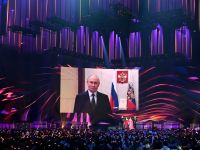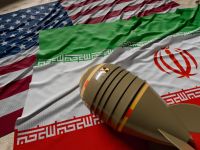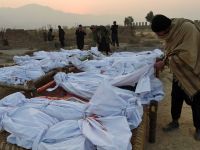When, earlier this year, a list was published of governments who it was deemed had failed to enact adequate measures to prevent money laundering, not one of the Arab Gulf states’ names was included. Indeed, the list that was prepared by an international body created by the original G7 industrialized nations, included officials from the Gulf Cooperation Council (GCC), as well as the representatives of 26 nations and the European Commission.
However, in an extensive report published August 6 by the London-based Arabic daily Al-Majallah, it was claimed there has been widespread evidence of money-laundering activity in the banking systems of countries belonging to the GCC, with the UAE and Bahrain being targeted most often, because of their liberal banking systems.
According to Al-Majallah, in 1998 the UAE central bank distributed a circular that first raised the specter of money laundering. Its inspectors, the central bank said, were monitoring the movement of large sums of money through certain accounts, which appeared to be inconsistent with the income of the individuals and the commercial enterprises who owned them. On occasion, significant amount of capital would be transferred into bank accounts, whose owners would then withdraw the money or transfer it elsewhere—within a short period of time after its arrival. These types of activities, experts say, are typical of money-laundering rings, whose aim is to mask the true identity of ill-gained cash by moving it—sometimes many times and in different amounts—through the international banking system.
Officially, government officials in the GCC states have discounted the existence of widespread money laundering, but, in its report, Al-Majallah stated that millions of dollars had been laundered through banking institutions in the region during the past few years, and this has prompted action on the part of the various authorities involved to create safeguards and to close legal loopholes, in an attempt to prevent such activities from assuming serious proportions. However, banking experts note that the use of electronic banking by the money-laundering rings makes the monitoring and prevention of the practice almost impossible.
In a number of the Gulf states, legislation is currently being prepared to deal with the problem. Such is the case in Oman, where earlier this year Dr. Ali Bin-Muhammad Musa, the deputy chairman of the Omani central bank's board of governors, warned earlier about the increasing danger of the phenomenon. Preventative efforts by the authorities, Musa said, are being met by similar or even greater efforts by money launderers.
In Bahrain, legislation is also on the drawing board. It is designed to strengthen the criminal code, by clearly identifying money laundering as a serious offense and specifying the appropriate punishments that should be handed down to perpetrators.
In Qatar, the central bank has instructed all the banking and financial institutions in the country to enact measures to ensure that no money laundering is taking place. More specifically, the banks have been asked to check the identity of clients when concluding deals, providing services, or undertaking any banking transaction exceeding 30,000 Qatari riyals. In such cases, the central bank suggested that the commercial banks investigate the reputation of the client and ascertain whether he or she was still in business in Qatar. It also recommended that the banks obtain a letter of recommendation from banks or financial institutions for clients outside of the country.
Sources in Saudi Arabia insist that the kingdom has managed to minimize the phenomenon of money laundering, in part because a protective “wall” erected by the Saudi Arabian Monetary Agency (SAMA), which coordinates the exchange of information between the various banks operating in the country. However, Al-Majallah stated that, in the absence of clear and precise accounting records and the absence of a transparent taxation and accounting system monitoring the entry and exist of money from the accounts of individuals, it is difficult to confirm the accuracy of the claim. Furthermore, Al-Majallah quoted what it described as a reliable source as saying that a prominent Saudi businessman had expressed to him a readiness to launder money if asked.
The source of most of the “dirty” money is reportedly the former republics of the Soviet Union. According to Salah al-Sisi, an economist who has studied attempts to launder money in the UAE, the bulk of the illegal cash that entered the UAE since the beginning of the 1990s was not earned from drugs or the illegal arms trade. Instead it was cash that had been concealed for years from the former Communist regimes. The aim of the money launderers was to return such capital back from whence it came, but this time as profits from investments abroad. The laws of the formerly Soviet countries often do not oppose such activities, al-Sisi stated, but the banks and individuals in other countries, who had been taken advantage of by the money launderers, are often made to suffer.
One popular method used by such money launderers, Al-Majallah reported, is to deposit large sums of money in joint accounts with local interests, ostensibly with the purpose of investing them in projects in that country. At a later date, the local party is dismayed to discover that the foreign partner had changed his or her mind about the project and withdrawn the money back to his country. Such a phenomenon is especially inclined to occur in those countries where there has been a concerted effort to attract foreign investment.
Sometimes, the tentacles of the money laundering rings reach even higher. Al-Majallah quoted banking sources as warning about companies that are seeking to enter the region, under the guise of international investment houses, offering up to seven-year loans for major projects. Such companies, the sources said, are also seeking to conclude partnership deals with states, offering a minimum investment of $40 million. It is quite likely, the sources said, that the money in question is “dirty” and the entire schemes are essentially large-scale money laundering operations.
To date is not believed that any Gulf state has become involved in such a scheme. –(Albawaba-MEBG)
© 2000 Mena Report (www.menareport.com)







